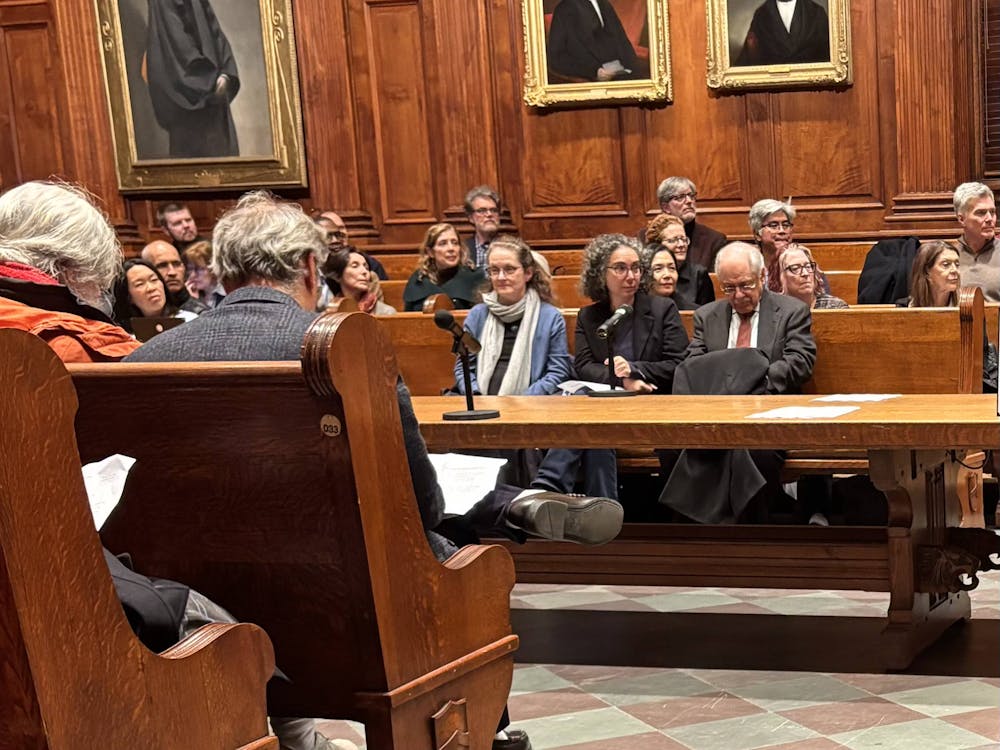As part of attending a White House conference on increasing college opportunities for low-income students on Jan. 16, University President Christopher Eisgruber ’83 outlined initiatives to make the University more accessible to lower-income students.
“Princeton has identified socioeconomic diversity as an important priority for the University, so I was enthusiastic about attending the conference,” Eisgruber said in an interview.
Eisgruber described the speech given byFirst Lady Michelle Obama ’85as a highlight of the conference. According to Eisgruber, Obama spoke about the importance of providing more opportunities for lower-income students as well as the important role that her Princeton education played in her own life. Other important speakers included President Barack Obama and U.S. Secretary of Education Arne Duncan.
Eisgruber explained that he and 85 other university presidents participated in a series of panels and breakout sessions in which the issue of improving access to education for low-income students was discussed at length.
One of the major takeaways from the conference was the “value of a selective, well-resourced university for low-income students,” Eisgruber said, explaining that research done by the White House indicates that low-income students are more likely to succeed at a well-resourced university like Princeton than at a state university.
Eisgruber submitted a statement as part of the summit outlining initiatives to make college more accessible to lower-income students. The statement has three major goals: expanding the University’s involvement with the Leadership Enterprise for a Diverse America, increasing efforts to identify and recruit low-income students and developing the current Freshman Scholars Institute.
Eisgruber explained that Princeton will provide support for more LEDA students by hosting more students in the University's summer institute, which helps high-achieving, low-income students prepare for college. He noted that with 60 students enrolled over time, Princeton has already enrolled the highest number of LEDA students of any university nationwide.
Regarding Eisgruber’s second goal, the University has hired a new admission officer to develop and implement strategies for better identifying and recruiting low-income applicants.
“One of the things that surprises a lot of students from low-income backgrounds is that going to Princeton may actually be less expensive for them than going to the state university that is nearby, so that’s the kind of information that we need to get out,” Eisgruber said.
Fred Hughson, a professor of molecular biology, explained that he is leading a new initiative within FSI to increase retention in STEM fields by offering a math and research class that will help students whose high school preparation in STEM subjects is less strong.
“I'm sure it will benefit low-income students and first-generation students,” Hughson said of this new initiative. “It was conceived, however, more broadly to increase the retention in STEM.”
This proposal will move forward if the University obtains a grant from the Howard Hughes Medical Institute, Hughson said. Hughson noted that this grant could potentially be worth over $2 million over five years and that the program will have to seek alternative fundingif this does not happen.

Politics professor Nolan McCarty, however, said the Obama administration is placing the emphasis on the wrong institutions in addressing college affordability.
“I think the bigger problem is what’s happening in state-funded institutions,” McCarty said. “At the end of the day, not many students can go to Harvard, Yale, Princeton. And I think that the funding problem is that the state universities — the colleges that train most of America’s students — should be the highest priority.”
Moreover, McCarty noted that as the University already does a good job with financial aid, it could focus its efforts on outreach, increasing recruitment in lower-income, non-urban areas by making use of the alumni network.
“If they can find ways of identifying the type of students that are very high performing but are unlikely to apply, I think getting alumni from the area to make contact with them and urge them and tell them coming to Princeton is feasible, I think that ought to go a long way in getting applications,” McCarty said.
In addition to its no-loan financial aid system, Princeton already offers programs like the Princeton University Preparatory Program, which includes summer and year-round programs for lower-income students from several schools in the Princeton area.
PUPP Director Jason Klugman explained that the program works with kids who have scored proficient or better on the N.J. state test but are among a group of students least likely to graduate from college. Klugman noted that 70 percent of PUPP scholars graduate college in comparison to the 9 percent graduation rates typical for low-income students.
“If they don’t have a family history of college attainment or college success or even high school attainment and high school success, it’s hard to kind of imagine what their future could be,” Klugman said.
Klugman also explained that he supports the University’s initiatives to open up conversations between students, faculty and administrators about first-generation students, establishing a greater support network for students of different backgrounds.
“One of the things we’re hoping to encourage, and I’d like to see moving forward is just more open conversations,” Klugman said.







